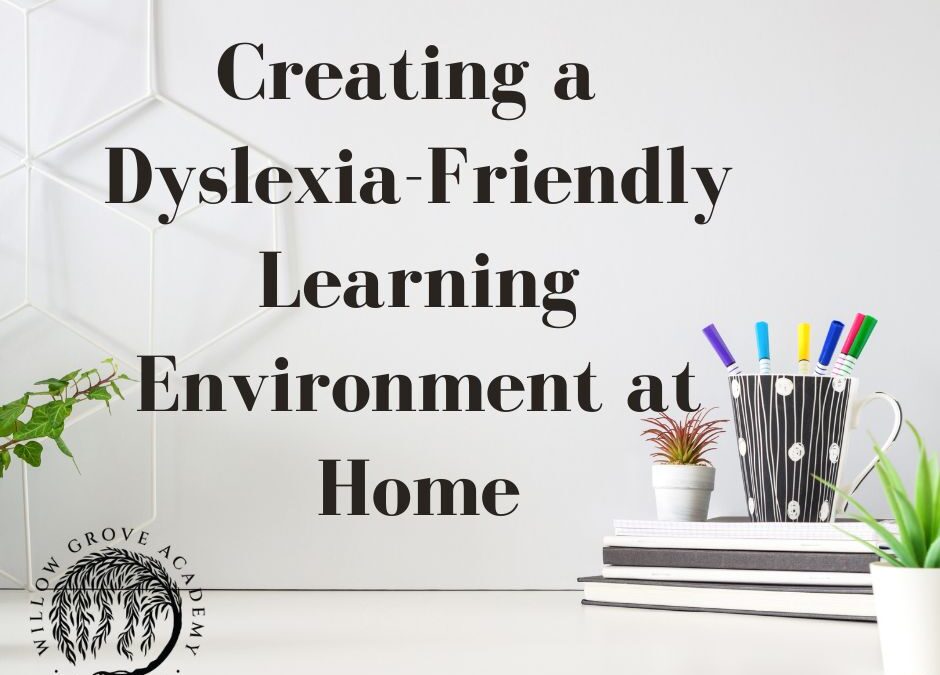At its core, dyslexia is a language disorder.
Understanding the way that it can spill out into all aspects of life is important for parents.
We talk a lot about classroom accommodations, but what can we do at home to help our struggling reader along?
5 Ways to Accommodate Dyslexic Students at Home
- Be patient. Sometimes dyslexia affects more than reading. You may have a child who is also having difficulty finding the right words to express what he wants, or how he feels. Don’t try to finish thoughts for him, be patient and allow him to get it out. Try not to get frustrated with him because he is already frustrated, your irritation is only going to make his worse and stress him further.
- Organization, time management, and following directions can be challenging for children with dyslexia. Help put systems into place that help him with this. Set up routines to keep rooms and workspaces clean. When giving directions, give no more than three at a time and have him repeat them back to you before you send him off to complete them. Also, keep a schedule so he knows what to expect and can learn to manage his own time as he gets older.
- When doing schoolwork, allow extra time for work to get done. Be sure to also factor in time to proofread assignments or seek help with difficult writing assignments. Extra time should always be part of the schedule to complete assignments!
- Always offer audiobooks as an alternative to reading- for school or for pleasure. Many younger students enjoy being read to by mom or dad too. Cleaning or doing chores is always more enjoyable when listening to music or an audiobook so incorporate it as part of your child’s routine. Many dyslexic people learn to avoid books because reading is hard for them, audiobooks or reading aloud changes that.
- Look for activities and hobbies that showcase his talents. Foster these interests, usually they turn into career options down the road. Children are resilient and naturally navigate their interests into activities that showcase their strengths, help them along this path.
Being dyslexic is a lifelong condition.
It is life-altering to be sure but not always in a negative way. Working to make sure that your child feels safe and supported at home is vitally important to his well-being.
There is a bit of a learning curve to getting there, but once you get the hang of it, It is life as usual!

